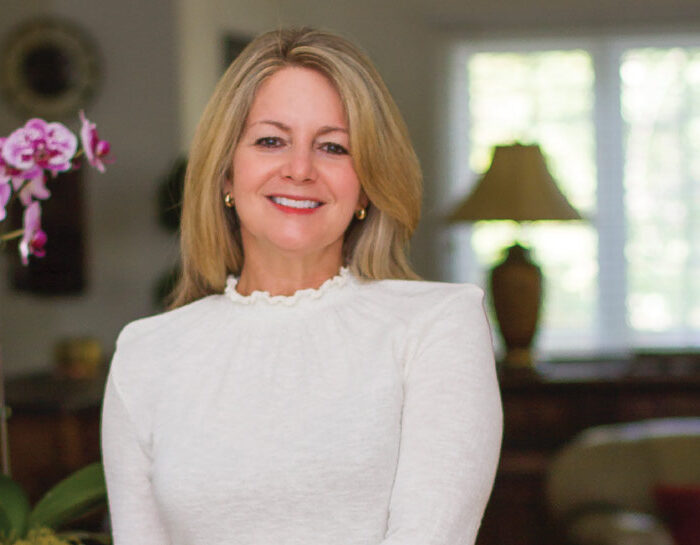The Future of Fun
By C.R. Beasley
By C.R. Beasley


KIMBERLY CARRIS, President of Spirit of 67 Foundation, heads a nonprofit that creates events to raise money for schools in Lake Forest. During the fall of 2019, things were running smoothly. The foundation raised the most money they had ever raised.
“I remember getting a call from my predecessor,” says Carris. “‘You’re making me look bad’, she jokingly told me.”
Shortly after, Carris was putting together the pieces for the Opening Doors for Education Home Tour, the foundation’s biggest and most popular event, where residents open homes for tours around Lake Forest. This event usually raises $80,000-$90,000 and draws around 600 people. Then came the shelter in place order and she had to cancel the event—and all the other foundations’ events.
“Two weeks later my predecessor calls again and tells me she now feels sorry for me,” Carris says.
Nonprofits and event production companies have had their legs swept out from underneath them by the coronavirus and have had to scramble to find ways to survive under the weight of government protocols. They have had no choice but to be creative.
The challenge across the industry is how to create events that people want, will attend in person or virtually, still make money, and entertain.
“Our number one goal for an event was, previously, pack the house, because if you can pack the house, everybody gets to make a little money,” said Ashley Bertling, president and CEO of Pyrotechniq Productions, a special events company focused on providing fire entertainment. Currently, they are producing the annual Lightscape event at the Chicago Botanic Garden. “Now we can’t pack the house—we can only pack sections of the house.”
Every production house and event planning committee experienced the same sea change. The struggle was how to pivot in the face of a pandemic. Cities canceled events, like the Lake Bluff and Lake Forest 4th of July parades, and organizers moved events online or redesigned them using the pandemic protocols as parameters.
Carris and her fellow board members had to sit down and decide how to help District 67 families and at the same time find ways to make money for the Spirit of 67’s Grants Program. This fall the organization hosted a virtual talk with best-selling author Lisa Damour. The original event plan was to have Damour to come for a community day with the students— visiting the school, meeting with parents, and talking with teachers.
“So we asked her, since times are crazy right now, if she would do a virtual event with our community in September,” Carris says.
Damour gave an hour-long virtual Zoom call. It was a smashing success.
The move from physical to virtual is not often seamless. It presents new challenges.
Bertling tells the story of being hired for a DJ event. The hiring company wanted live dancers for DJs who were performing in California. Bertling had to put together an AV team and dancers in Illinois, figure out how to shoot live with a green screen background, navigate server issues—the server was recording live in Ohio—all while the DJ sets were performed with a 3-hour time zone difference.
“We had to learn how to become our own little television show producers with zero experience,” Bertling says.
For outdoor “physical” events, the pandemic protocols have realigned the contours of event design. For the Lightscape exhibition at the Chicago Botanic Garden, Bertling found ways to give the same experience as last year.
“To accommodate the coronavirus’s new implications on how we gather,” Bertling explains, “we’ve extended hours so people can enter the event on more of a pulse system.”
This year, groups buy their tickets, wait until their allotted time, and then have 15 minutes to see the event before the next group enters.
A unique celebration pivot occurred recently in Lake Forest. Residents held a “drive-through” birthday party, where guests followed the circle driveway and watched a Jo-Jo Siwa impersonator perform as they drove past. Food, gifts, and prizes were individualized as favors.
Liz Campanella Breen, a wedding coordinator at Naturally Yours Events who coordinates weddings on the North Shore and in the Chicago area, has seen weddings come to a screeching halt. Last year, Naturally Yours planned 50 weddings. This year they have dwindled to almost none. This has forced them to be imaginative.
“We also have to take the temperature and photograph of every person coming in,” She says. “We’re involved in contact tracing.”
“It’s a different story now,” says Campanella-Breen. “You can’t have a buffet with a stack of plates anymore and everyone has to wear a mask.”
Other costs have popped up. Part of Ashley Bertling’s business was renting out studio space. Because they rent out to yoga space, they’ve had to add cleaning skills to their services. Supplies cost money.
The big question is, with the reduced capacities, how will event producers and nonprofits make and raise money now? The good news is that people are cooped up and willing to attend virtual events. Will this continue into the immediate future?
“People are having to make a choice right now for next year’s events, whether or not to just cancel them,” says Campanella-Breen. “People are hitting fatigue walls. They’re tired of being on their computers and rather than jeopardize the health of attendees, they’d rather just wait a year.”
Kimberly Carris acknowledges the fatigue is real, but that a large population in Lake Forest is looking for things to do and ways to support her events.
The Spirit of 67 Foundation recently planned a drive-in movie night fundraiser at Deerpath Middle School with concessions and a showing of Kung-Fu Panda, capping the limit of cars at 50.
“People are still seeking a connection to community as we all adapt to this new normal,” says Carris.
Sign Up for the JWC Media Email